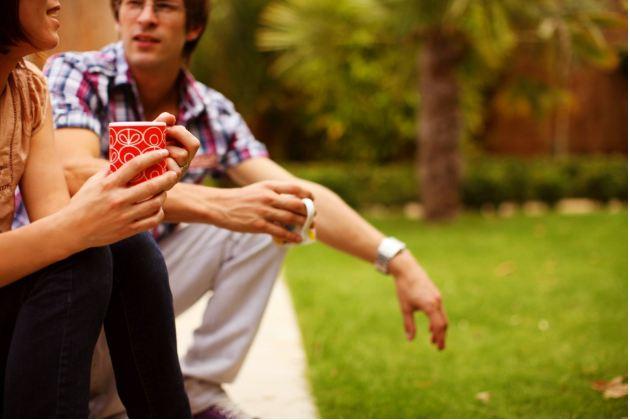Anxiety disorders

Anxiety disorders are conditions in which symptoms of anxiety are so severe or occur so regularly, they start to interfere with everyday life.
About anxiety disorders
Symptoms of anxiety disorders
Causes of anxiety disorders
Diagnosis of anxiety disorders
Treatment of anxiety disorders
About anxiety disorders
Anxiety is a feeling of unease. Everybody gets anxious when faced with a stressful situation, for example an exam or interview, or during a worrying time such as illness. It's also normal to feel anxious when you face something difficult or dangerous. Mild anxiety can often be positive and useful, particularly if you are better at working under pressure.
About one in 10 people in the UK are affected by ‘troublesome’ anxiety. This is considered an anxiety disorder when it's long-lasting, severe and is interfering with everyday activities. Excessive anxiety is often associated with other mental health problems such as depression.
Types of anxiety disorder
Below are some examples of anxiety disorders.
-
Phobias A phobia is a fear that is out of proportion to any real danger. If a phobia interferes with your ability to lead a normal life, then it may be considered an anxiety disorder. Common phobias include fears of heights, spiders, mice, blood, injections or enclosed spaces.
-
Panic disorder If you have panic disorder, you can suddenly develop intense periods of fear known as panic attacks. You may find that something triggers your panic attacks, or they may develop for no apparent reason. Panic attacks usually last five to 10 minutes, but they can last longer.
-
Obsessive-compulsive disorder If you have obsessive-compulsive disorder (OCD), you may have repeated obsessions and/or compulsions that make you feel anxious. OCD symptoms vary from mild to severe. They include obsessions (recurrent ideas that make you feel distressed or anxious) and compulsions (actions or rituals which you feel necessary to cancel out the obsessions).
-
Post-traumatic stress disorder You can develop post-traumatic stress disorder (PTSD) if you have had, or have witnessed, a traumatic event. PTSD symptoms include anxiety, which may come and go, and recurring thoughts, memories, images, dreams or distressing 'flashbacks' of the trauma. PTSD may develop years after the traumatic event has occurred.
- Generalised anxiety disorder Anxiety can be a long-term disorder where you feel worried most of the time about things that might go wrong. This is called generalised anxiety disorder (GAD). If you have GAD, you may also have panic attacks and some phobias.
Symptoms of anxiety disorders
Anxiety disorders can cause both psychological and physical symptoms.
If you have an anxiety disorder, your main symptom will be feeling anxious. However, this can lead to other psychological symptoms such as:
- sleeping difficulties (insomnia)
- feeling tired
- being irritable or quick to get angry
- being unable to concentrate
- a fear that you're 'going mad'
- feeling out of control of your actions, or detached from your surroundings
When you're anxious, you may also have a range of physical symptoms. This is caused by the release of the hormone adrenaline – your body's so-called 'fight or flight' response. Physical symptoms of anxiety include:
- discomfort in your abdomen (tummy)
- diarrhoea
- dry mouth
- rapid heartbeat or palpitations
- tightness or pain in your chest
- shortness of breath
- dizziness
- needing to urinate more often than usual
- difficulty swallowing
- shaking
These symptoms may be caused by problems other than anxiety disorders. If you have any of these symptoms, see your doctor for advice.
Causes of anxiety disorders
There are many different causes of anxiety. It may not be clear why you have anxiety, but you may be more likely to develop an anxiety disorder if you:
- go through a stressful, life-changing event such as a bereavement, or witness something traumatic
- have another mental health condition, such as depression or alcohol dependence
- have a physical illness, such as a thyroid disorder
- take illegal substances such as amphetamines, LSD, and ecstasy
- are withdrawing from long-term use of some medicines, such as tranquillisers
Some people seem to be born with a tendency to be more anxious than others. This means anxiety disorders may be genetically inherited. Equally, people who are not naturally anxious can become so if they are put under intense pressure.
Diagnosis of anxiety disorders
If you think feelings of anxiety are affecting your day-to-day life, visit your GP.
Your GP will want to identify what’s causing your anxiety. He or she will ask about your symptoms and examine you.
In some circumstances your GP may refer you to a counsellor, therapist or psychiatrist for further diagnosis.
Treatment of anxiety disorders
Self-help
There are various lifestyle changes you can make to help reduce feelings of anxiety. For example, taking part in regular physical activity, avoiding stimulants such as cigarettes and alcohol and eating a healthy diet can help to improve your symptoms.
Contacting and talking to other people who have anxiety disorders through charities and patient groups can be a good source of support and advice. Your GP may be able to advise you about services available in your area.
Talking therapies
Your GP may refer you to a counsellor or a therapist for treatment.
Talking through your problems with a counsellor may help you to deal better with your anxiety. Counselling may be particularly helpful if you have a panic disorder, social phobia or GAD, especially in the short term, but it isn’t suitable for everyone.
Cognitive behavioural therapy (CBT) is a short-term psychological treatment. CBT helps to challenge negative thoughts, feelings and behaviour, and is particularly suitable if you have problems such as phobias or panic attacks.
Medicines
There are a number of different types of medicines that can be used to treat anxiety disorders. Your GP may prescribe you one of the following medicines, depending on how much your anxiety affects you.
- Benzodiazepines may be used for the short-term relief of severe anxiety. They aren’t prescribed for long-term use because of the risk of addiction.
- Antidepressants can be used on their own for chronic anxiety or in combination with a benzodiazepine.
- Beta-blockers may help to reduce some of your physical symptoms, such as rapid heartbeats or palpitations and shaking. However, they don’t help with the psychological symptoms of anxiety.
Always ask your doctor for advice, and read the patient information leaflet that comes with your medicine.
Complementary therapies
Some relaxation techniques such as meditation and low impact yoga or tai chi exercises may help you to deal with your anxiety. However, there isn’t enough research on these types of therapy to tell if they are effective or not. You should always speak with your GP before you start any complementary therapy courses or treatments.
- antidepressants
- anxiety
- anxiety disorders
- benzodiazepines
- CBT
- cognitive behavioural therapy
- Depression
- GAD
- generalised anxiety disorder
- insomnia
- meditation
- Mental Health
- obsessive-compulsive disorders
- OCD
- panic disorders
- phobias
- post-traumatic stress disorder
- PTSD
- stress
- talking therapies
- troublesome anxiety
See our answers to common questions about anxiety disorders, including:
How long will it take for medicines or cognitive behavioural therapy to improve my anxiety disorder?
What treatments can my child get for anxiety?
How can I help reduce my anxiety myself?
What is trichotillomania and how is it treated?
How long will it take for medicines or cognitive behavioural therapy to improve my anxiety disorder?
Medicines and cognitive behavioural therapy (CBT) do not work instantly. Both types of treatment can take a number of weeks before you notice any improvements.
Explanation
If your GP prescribes a medicine for your anxiety, it's important you understand that it may not work immediately and your symptoms may even get worse for a short time. Medicines such as antidepressants that are often used to treat anxiety disorders usually take about two to four weeks before they start working.
A typical treatment course of CBT lasts about six weeks to six months and involves weekly sessions lasting up to an hour each. For some people, the symptoms can get worse in the short term. If this happens, it’s important not to stop treatment. It may be that you need more CBT sessions to make sure you can cope better with your anxiety.
What treatments can my child get for anxiety?
Children and teenagers can be treated for anxiety with medicines, but it’s generally better to try psychological therapies first.
Explanation
Some antidepressant medicines can be used to treat anxiety disorders in children and teenagers. For example, some types of selective serotonin re-uptake inhibitors have been found to help children and young adults deal with obsessive-compulsive disorder (OCD). These medicines are only available on prescription from your GP or specialist and will only be considered after all other treatment options have been looked at.
Instead of prescribing medicines, your GP or specialist may want to try a course of psychotherapy known as cognitive behavioural therapy (CBT). CBT is a type of talking therapy carried out by a specially trained therapist. If you need further information, see our CBT factsheet or visit your GP for more advice.
How can I help reduce my anxiety myself?
There are a number of self-help measures you can take to help reduce your anxiety. Everyone is different, so it’s important to try different things and see which works best for you.
Explanation
Taking part in regular physical activity can help you to feel less anxious. When you exercise, your brain releases hormones called endorphins, which can improve how you feel.
Avoiding stimulants such as coffee, cigarettes and alcohol can also help to reduce anxiety. If you eat a healthy, well balanced diet and get enough sleep, you will be able to cope better with stress.
Even talking to friends or relatives about the things that are making you feel anxious can help. This may encourage you to seek practical advice for your problems if you need to.
Learning to relax in any way that suits you is also important. See our relaxation videos for ideas.
What is trichotillomania and how is it treated?
Trichotillomania is a medical disorder in which people have an obsessive urge to pull out their own hair, causing considerable hair loss. The most effective way to treat trichotillomania is with a type of psychotherapy known as habit-reversal therapy.
Explanation
Trichotillomania usually starts in childhood. The main symptom is pulling hair from your scalp and having increased stress levels and anxiety. Trichotillomania can be thought of as a type of obsessive-compulsive disorder (OCD).
Habit-reversal therapy is a type of psychotherapy that can be used to help people with trichotillomania. It has four different stages, including:
- self-monitoring, where you keep a record of your hair-pulling behaviour
- awareness training, where you learn to recognise the situations that make you pull out your hair
- stimulus control, where you learn to avoid situations that make you pull out your hair, or use techniques to stop you from doing itstimulus-response intervention, where you start doing different activities, such as taking a walk or relaxing, instead of hair-pulling
Further information
Mind
0845 766 0163
www.mind.org.uk
Mental Health Foundation
020 780 31101
www.mentalhealth.org.uk
Sources
• Anxiety. Mind. www.mind.org.uk, accessed 9 September 2010
• Anxiety, Panic & Phobias. The Royal College of Psychiatrists. www.rcpsych.ac.uk, published April 2010
• Overcoming fear and anxiety. Mental Health Foundation. www.mentalhealth.org.uk, accessed 9 September 2010
• Anxiety Disorders. eMedicine. www.emedicine.medscape.com, published April 2010
• Obsessive-compulsive disorder: full guideline. National Institute for Health and Clinical Excellence (NICE). Novembrer 2005, CG31. guidance.nice.org.uk/CG31
• Post-traumatic stress disorder. The Royal College of Psychiatrists. www.rcpsych.ac.uk, published March 2010
• Simon C, Everitt H, and Kendrick T, Oxford handbook of general practice. 2nd ed. Oxford: Oxford University Press, 2010: 990
• Bower P, Rowland N. Effectiveness and cost-effectiveness of counselling in primary care. Cochrane Database of Systematic Reviews 2006, Issue 3. doi:10.1002/14651858.CD001025.pub2
• Cognitive Behavioural Therapy (CBT). The Royal College of Psychiatrists. www.rcpsych.ac.uk, published August 2009
• Joint Formulary Committee, British National Formulary. 60th ed. London: British Medical Association and Royal Pharmaceutical Society of Great Britain, 2010
• Krisanaprakornkit T, Sriraj W, Piyavhatkul N, et al. Meditation therapy for anxiety disorders. Cochrane Database of Systematic Reviews 2009, Issue 1. doi:10.1002/14651858.CD004998.pub2
• The Anxious Child. Mental Health Foundation. www.mentalhealth.org.uk, accessed Septtember 17 2010
• Baldwin DS, Anderson IM, Nutt DJ, et al. Evidence-based guidelines for the pharmacological treatment of anxiety disorders: recommendations from the British Association for Psychopharmacology. J Psychopharmacol, 2005; 19(6):567–96
• Anxiety Disorder, Trichotillomania. eMedicine. www.emedicine.medscape.com, publiched September 23 2009
















